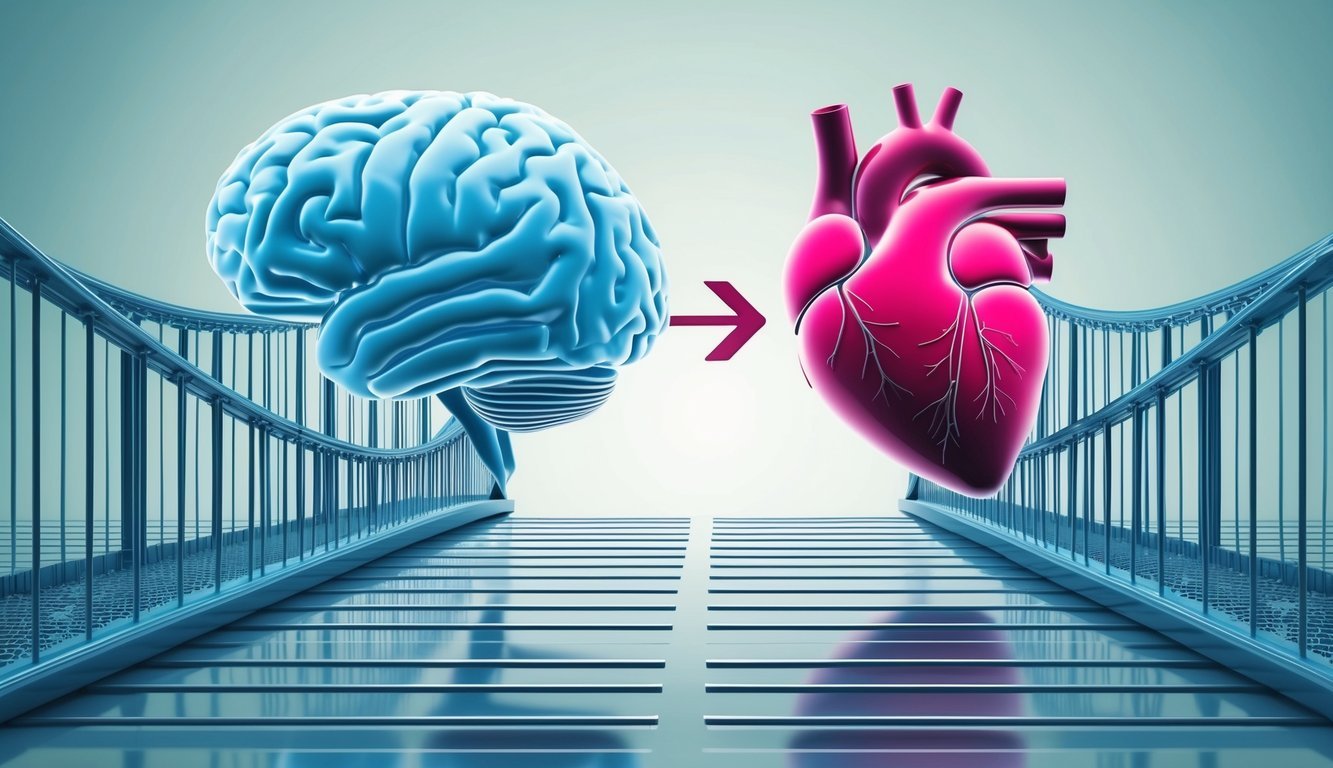PsychNewsDaily Publishers
100 Summit Drive
Burlington, MA, 01803
Telephone: (320) 349-2484
PsychNewsDaily Publishers
100 Summit Drive
Burlington, MA, 01803
Telephone: (320) 349-2484
Gifted individuals often exhibit higher emotional intelligence, enhancing their ability to understand and manage emotions, which significantly contributes to their personal and professional success.

Many people wonder about the connection between IQ and emotional intelligence, especially in gifted individuals. Research shows that gifted people often have higher emotional intelligence than those who are not gifted. This ability to understand and manage emotions can play a significant role in their overall success in life, affecting relationships and personal growth.
Gifted children, with their unique talents, may experience heightened sensitivity to emotions, both their own and those of others. This sensitivity can enhance their emotional intelligence, allowing them to navigate social situations more effectively.
As a result, emotional intelligence can help gifted individuals not only excel academically but also build strong connections with peers and adults.
Recognizing the importance of emotional intelligence in gifted individuals is crucial. It helps them understand themselves better and fosters empathy towards others. This combination of IQ and EQ can create a powerful force for success in various areas of life, from school to future careers.

Gifted individuals often shine in many areas, especially when it comes to emotional intelligence (EQ) and intelligence quotient (IQ). They tend to show a unique blend of these qualities, which can impact their social interactions and problem-solving skills.
Emotional intelligence (EQ) refers to the ability to recognize, understand, and manage emotions in ourselves and others. This skill is crucial for effective communication and building relationships. High EQ helps individuals navigate social situations and respond to emotions appropriately.
Intelligence quotient (IQ) measures cognitive abilities, including reasoning, problem-solving, and understanding complex ideas. Gifted children often score significantly higher on IQ tests, reflecting their advanced cognitive skills.
Research suggests that gifted individuals have greater emotional intelligence when measured by ability, showcasing a blend of both EQ and IQ.
Gifted children with high EQ and IQ often display several distinct traits. They possess strong empathy, allowing them to connect deeply with others. These children usually think critically and can analyze situations from multiple perspectives.
In addition, they may show heightened sensitivity to the feelings of others. This sensitivity can sometimes lead to emotional hypersensitivity, which means they feel emotions more intensely. Understanding their own feelings can help these gifted children manage emotions better and enhance their social interactions.
Overall, gifted individuals with high EQ and IQ tend to excel in both academic and social environments. They create enriching relationships and foster a supportive community around them.

Emotional intelligence (EQ) plays a crucial role in how individuals achieve success, both personally and professionally. It helps with self-management and enhances relationships in the workplace.
Self-management is a key part of emotional intelligence. It involves controlling one’s emotions to make better decisions.
For instance, when individuals can manage stress, they can stay focused on their goals.
Having high EQ allows people to bounce back from setbacks more easily. They can maintain a positive outlook, which is essential for personal growth. This resilience often leads to greater success, as they continue to pursue their objectives without being easily discouraged.
Furthermore, those with strong self-management skills tend to be more organized. They can prioritize tasks effectively, which increases productivity. This ability also helps in making thoughtful decisions that align with long-term ambitions.
Strong relationships are built on emotional understanding. People with high EQ are better at recognizing others’ feelings. This skill is important for creating a positive work environment.
Effective communication is another benefit of good emotional intelligence. Individuals who can express their thoughts clearly help avoid misunderstandings. This clarity promotes teamwork and collaboration among colleagues.
Being a team player is vital in professional settings. Those with high EQ often take the initiative in group settings. They listen actively and encourage participation from all members. This fosters a sense of community, making it easier to achieve common goals.
In essence, high emotional intelligence enhances both personal and professional success through better self-management and improved relationships.

Communication plays a crucial role in linking IQ with EQ. Understanding how to read social cues and using empathy effectively helps individuals navigate social interactions successfully. This section will highlight two key aspects: understanding social cues and using empathy in communication.
Social cues are signals that people give during interactions. These can include body language, tone of voice, and facial expressions.
For those with high IQs, recognizing these cues can enhance their communication skills.
Being aware of social cues can help individuals respond appropriately in conversations. For example, a smile may indicate agreement, while crossed arms might show discomfort.
When individuals comprehend these signals, they can engage more meaningfully. This deeper level of interaction fosters better relationships and improves teamwork.
Empathy is the ability to understand and share the feelings of others. It is a powerful tool in communication.
People with high emotional intelligence often use empathy to connect with others.
When someone listens actively and shows genuine concern, it encourages openness. This openness can lead to clearer communication and more effective problem-solving.
To practice empathy, individuals can ask open-ended questions and reflect on the emotions expressed by others.
For instance, saying, “I see that you are upset. Would you like to talk about it?” shows understanding and support.
Using empathy creates a safe space for sharing thoughts and feelings, which enhances both personal and professional relationships.

Emotional intelligence (EQ) plays a crucial role in leadership and teamwork within the business environment. EQ helps individuals manage their emotions and understand others, which is vital for building strong relationships at work. It also enhances soft skills, making employees more effective team players.
Leaders with high emotional intelligence can inspire and motivate their teams. They understand their team members’ emotions, allowing them to respond empathetically. This strengthens trust and communication.
A study showed that leaders with high EQ foster better collaboration among team members. They create an open atmosphere where everyone feels valued. This leads to improved problem-solving and creativity, making the team more effective in meeting goals.
Soft skills, including communication, teamwork, and adaptability, are increasingly essential in business. Employees with strong EQ can navigate social complexities and build meaningful relationships.
In a corporate setting, these skills enhance collaboration and productivity. For example, employees who communicate well can resolve conflicts quickly. This reduces tension and promotes a positive work culture.
Training programs that focus on developing emotional intelligence can benefit the whole organization. By investing in soft skills, companies can improve overall performance and employee satisfaction.
In summary, emotional intelligence and soft skills contribute significantly to success in the business realm. These attributes foster a supportive environment where teamwork can thrive, leading to better outcomes for everyone involved.

Gifted individuals often face unique challenges in social situations. Many experience feelings of loneliness and isolation due to their advanced cognitive abilities, which can affect their social skills and behaviors. Understanding these feelings and learning ways to connect with others is important for emotional well-being.
Identifying loneliness can be tough. Gifted individuals may feel disconnected or misunderstood. Signs include:
Recognizing these signs can help individuals understand their feelings better and take steps to address them.
Boosting social skills can help combat loneliness. Here are some effective strategies:
These strategies encourage positive interactions and can strengthen connections with others.
Having a supportive community is crucial for gifted individuals. Engaging with others who share similar experiences can lessen feelings of isolation.
A sense of belonging can enhance motivation and improve overall emotional health for gifted individuals. Finding supportive environments can make a significant difference in overcoming loneliness.

This section addresses common questions about the relationship between IQ and EQ, particularly among gifted individuals. It covers the possibility of having both high IQ and EQ, the differences between emotional and traditional intelligence, and how emotional intelligence is typically measured.
Yes, a person can have both high IQ and high EQ. Many gifted individuals exhibit high levels of both. They can excel in problem-solving while also understanding and managing emotions effectively.
Emotional intelligence focuses on the ability to recognize, understand, and manage emotions in oneself and others. Traditional intelligence, or IQ, measures cognitive abilities like reasoning, problem-solving, and knowledge. Both are important but serve different purposes in life.
Key indicators include strong empathy, good communication skills, and the ability to manage stress and conflicts. People with high emotional intelligence can also easily connect with others and understand their feelings.
Research shows a positive correlation between IQ and EQ. When individuals have a higher IQ, they might also display better emotional understanding. However, many people with average IQ can excel in emotional intelligence.
Yes, some individuals with high IQ may struggle with social skills or emotional awareness. They might excel academically but find it difficult to connect with others or read emotional cues in social situations.
People typically measure emotional intelligence through self-report questionnaires and assessments. These tools evaluate how individuals perceive their emotions, respond to stress, and interact with others.